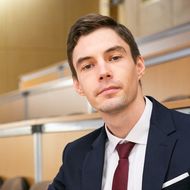Russian Postdoc Programme Brings Emerging Scholars from all over Russia to HSE Research Teams

The Russian Postdoc Programme has once again attracted talented researchers from all over Russia to work on research projects at HSE University. The programme aims to provide emerging Russian scholars and scientists with the opportunity to conduct research at HSE. In the new academic year, 54 Russian postdoctoral fellows will join the University.
‘Despite the unpredictability of the pandemic, we received over 200 applications this year from colleagues from universities, research and medical organizations, and private companies who plan to focus on research. I hope that our colleagues will be able not only to fruitfully pursue their research projects, but also to become actively involved in the university environment by participating in various HSE events,’ says project coordinator Yulia Falkovich.
In the summer of 2020, the programme’s first cohort graduated, which included 18 postdocs. The programme’s participants conducted research; took part in HSE academic events and grant projects; and published their work in leading academic journals in their disciplines.
This year the programme welcomes 32 new postdocs in addition to 22 postdocs, whose work was positively assessed by the competition committee and will continue their work in the programme for a second year. In total, 54 emerging scholars and scientists from the country's regions will be working at HSE University as part of the Russian Postdoc Programme this academic year.
This year’s Russian postdocs hail from Cherepovets, Vladivostok, Tula, Ufa, St. Petersburg, Smolensk, Kemerovo, Ulyanovsk, Novosibirsk, and other cities. The participants’ professional backgrounds are just as diverse as their hometowns: many of them have experience working not only at Russian universities, but at charitable foundations, companies, magazine editorial offices, foreign universities, and medical institutions.
In addition to conducting research, Russian postdocs participate in the development of the programme itself. Last year, participants organized a special round table, ‘Problems of National Research Mobility: Challenges and Prospects’ at HSE’s April Conference, served as guest editors for an issue of Higher Education in Russia and Beyond about postdocs, and also discussed how to conduct remote research at a meeting of the HSE Science Café for Russian postdocs.
‘We can get involved with several projects at different HSE departments simultaneously,’ says Lev Sokolschik, a programme participant. ‘It is especially valuable that many of the projects are practice-oriented, and participation in these initiatives makes it possible to directly test the theoretical and methodological approaches you have been developing over the course of your research.’
One of HSE’s main goals, as stipulated in the 2030 University Development Programme, is to conduct world-class research in the context of global challenges and national interests. Russian postdocs are actively involved in research of this magnitude.
Lev Sokolschik, Russian Postdoc, Research Fellow, Centre for Comprehensive European and International Studies, HSE University

As a member of the research team headed by the Dean of the Faculty of World Economy and International Affairs, Professor Sergey Karaganov, I managed to contribute to the development of a report on new ideas and principles of Russian foreign policy, prepared jointly with the Ministry of Foreign Affairs of the Russian Federation.
In addition, at the invitation of the director of Centre for Studies of Civil Society and Non-Profit Sector, Irina Mersiyanova, I became a member of the Working Group for a project on involving citizens in constructive public activities. The analytical materials obtained over the course of the project were in high demand in various fields, including in the activities of the Presidential Administration of the Russian Federation. Key findings are reflected on the pages of the weekly HSE Analytical Bulletin on the effects of the coronavirus pandemic.
HSE’s many international collaborations, which the University is constantly expanding, particularly motivate me to push myself professionally. I took the opportunity to work as a coordinator from HSE in collaborating with colleagues from Harvard University, the Frankfurt Peace Institute, Icelandic University, the Woodrow Wilson Center, and MGIMO on a programme, the Academy of Arms Control Negotiations, which is aimed at training young leaders in international relations.
See also:
Pham Cong Thang – Pursuing a Post-Doc in Computer Science
On September 12, Pham Cong Thang, who goes by Thang, arrived in Moscow to begin a post-doctoral fellowship at HSE’s International Laboratory of Deep Learning and Bayesian Methods (Faculty of Computer Science, Big Data and Information Retrieval School). Working under the supervision of Professor Dmitry Vetrov, Thang will focus primarily on text and image processing, and computer vision.


